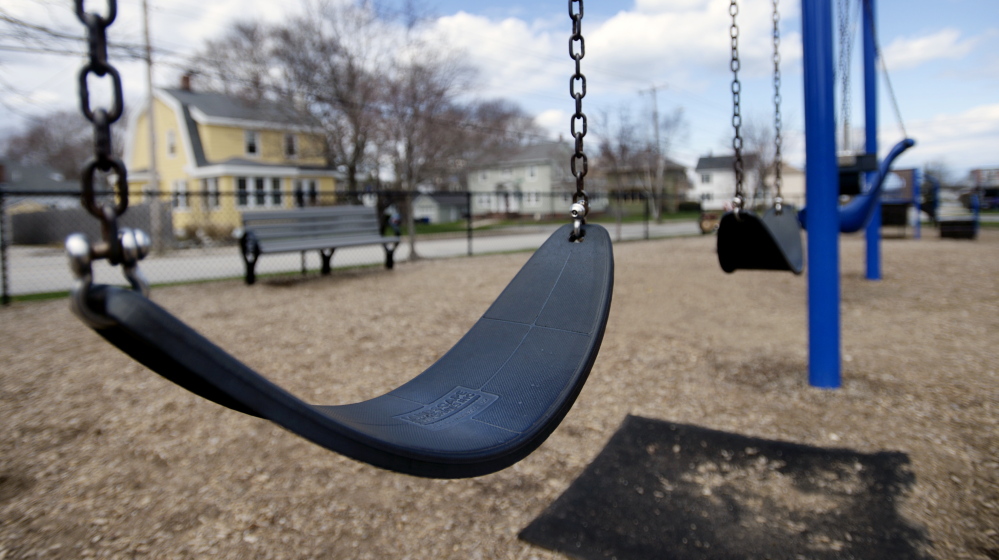Six of the 10 registered sex offenders who live in South Portland reside near schools and parks where children play. Police Chief Edward Googins wants to make sure that number doesn’t grow.
“To me, as a police chief, that is concerning,” he said.
The South Portland City Council is considering an ordinance to prohibit sex offenders who have been convicted of serious crimes against children from living within 750 feet of the city’s schools, parks and recreation areas. The proposed residency restrictions are the most stringent allowed by state law.
Dozens of communities in Maine have ordinances that restrict where sex offenders can live. Some, including Westbrook and Gorham, had to loosen their rules when the Legislature passed a bill in 2009 that limited how far those restrictions could go, to prevent communities from effectively banning sex offenders from living in a community.
Portland officials considered an ordinance in 2010, after finding out that more than a dozen sex offenders were living in apartment buildings near Portland High School and the Boys & Girls Clubs of Southern Maine. The proposal died in the City Council’s Public Safety Committee.
Googins said a South Portland ordinance became a priority for him when he realized that the homes of six of the 10 sex offenders who live in the city are near schools or parks.
Googins said he brought up the issue a few months ago at a goal-setting session with the City Council, which was interested in looking into an ordinance. The council discussed the proposal at a workshop this week and is scheduled to take an initial vote on it Monday, he said.
Under state law, the ordinance can apply only to sex offenders who have been convicted of Class A, B or C crimes against children younger than 14.
Googins said he doesn’t know whether the six offenders who live near schools and parks were convicted of such crimes. Regardless, he said, they would not be affected by the restrictions, which would apply only to people who moved into the city after the ordinance was adopted.
The proposed restricted areas surround 11 schools and 17 parks in the city.
Googins said sex offenders have 24 hours to notify local police when they move into a community. In South Portland, he said, the department then provides leaflets to neighbors and notifies schools when an offender moves in.
If the ordinance is adopted, he said, police will check to determine whether an offender’s address is within a restricted area when they move into South Portland. If it is, the offender would have 30 days to move before the city could take legal action and start imposing fines of $500 per day.
The American Civil Liberties Union of Maine has opposed residency restriction ordinances, saying data show that most sex offenses are committed by people who know their victims.
“These laws can create a false sense of security without doing anything to make children safer,” said Rachel Healy, spokeswoman for the ACLU of Maine.
The laws also can push offenders “further into the shadows,” she said.
Healy said she was aware of the proposal in South Portland but the ACLU of Maine has not decided “what course of action we’ll take.”
In New Hampshire, lawmakers are considering a bill to prohibit municipalities from restricting where sex offenders can live.
Leslie Bridgers can be contacted at 791-6364 or at:
lbridgers@pressherald.com
Twitter: @lesliebridgers
Send questions/comments to the editors.




Success. Please wait for the page to reload. If the page does not reload within 5 seconds, please refresh the page.
Enter your email and password to access comments.
Hi, to comment on stories you must . This profile is in addition to your subscription and website login.
Already have a commenting profile? .
Invalid username/password.
Please check your email to confirm and complete your registration.
Only subscribers are eligible to post comments. Please subscribe or login first for digital access. Here’s why.
Use the form below to reset your password. When you've submitted your account email, we will send an email with a reset code.